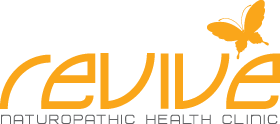Got Vitamin D?
October 29, 2011 · Dr.Sooin Lee, ND · Uncategorized · 0 CommentsVancouver aka ‘Raincouver’ just doesn’t give us enough sunshine. Our summer was too short and now it is time to bring out the rain gear. It is also time for everyone to start taking vitamin D!
Sunlight is the most effective way to get vitamin D. However, people living in Vancouver spend about six months of the year under cloudy skies and nearly two thirds of the population has inadequate levels of vitamin D. But what about getting it through food? Only very few food are natural sources – fatty fish such as salmon, sardines, and mackerel; egg yolk; beef liver; and Swiss cheese. Most of these contain less than 300 IU per serving, which is not enough to offer adequate amounts without sun exposure or supplementation.
The importance of vitamin D in our overall health cannot be emphasized enough. Vitamin D is believed to be beneficial in preventing cancer, osteoporosis, and diabetes. It also acts as an immune modulator and stimulates immune fighting cells, thus fights infections, including the flu. And, the list goes on and on as deficiency of vitamin D can potentially impact all 36 organs.
According to a recent study in Japan, vitamin D is more effective than the flu vaccine. This study published by the American Journal of Clinical Nutrition shows that anti-viral drugs reduce the risk of flu infection by 8 percent in children who have been exposed to infection, compared to a 50 percent or greater reduction with vitamin D. [i]
If you are pregnant, maintaining the optimal vitamin D level is one of the most important strategies to keep you and your baby healthy. It prevents low birth weight, lowers your risk of pre-eclampsia (a sudden onset of high blood pressure during pregnancy), and lowers your baby’s risk of diseases such as infantile hypocalcaemia and rickets.
The current Canada DRI (Dietary Reference Intakes) of 400IU to 600 IU is recommended to prevent rickets, but is not enough to provide protection from cancer, infections, and heart disease. Most adults need about 3,000 to 4,000 IUs a day to achieve healthy blood levels, and children under 12 years old need about 1,000 to 2,000 IUs.
Vitamin D requirements are highly individual, and the only accurate way to determine your optimal dose is to get your blood 25 hydroxy D level tested regularly. Ideally, you want to maintain a vitamin D level of at least 50ng/ml and higher. Adults, pregnant women, and children all have varying recommended dosages and so should seek advice from your family naturopath before beginning supplementation with vitamin D.
[i] http://www.ajcn.org/content/early/2010/03/10/ajcn.2009.29094.abstract




Add Your Comment
You must be logged in to post a comment.